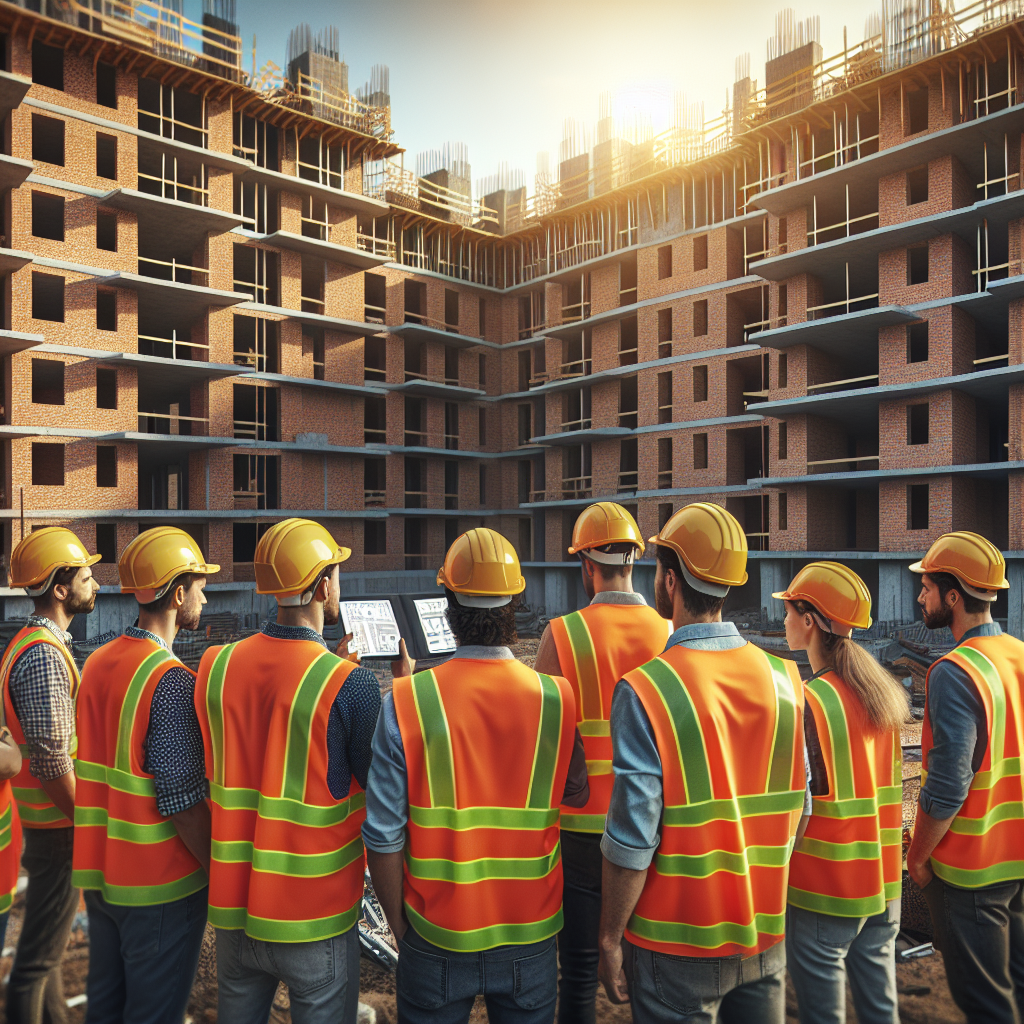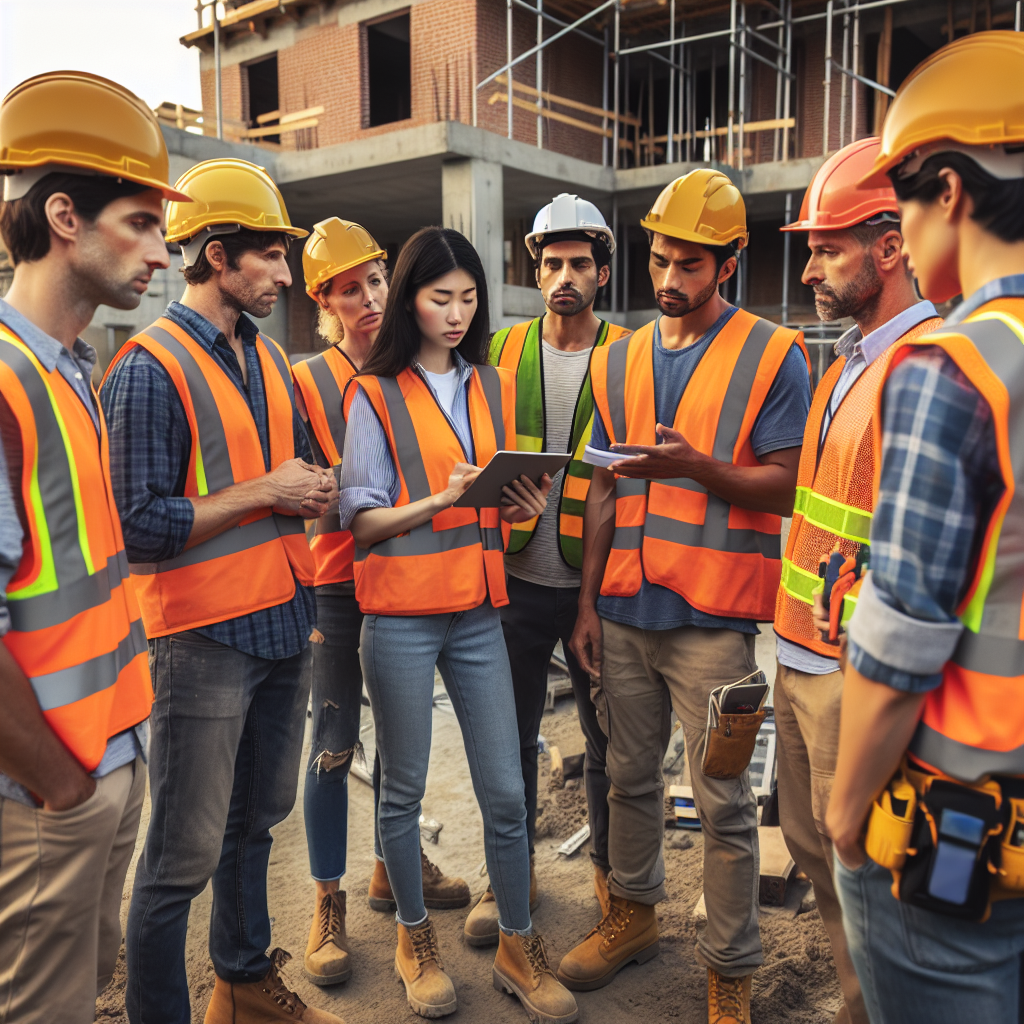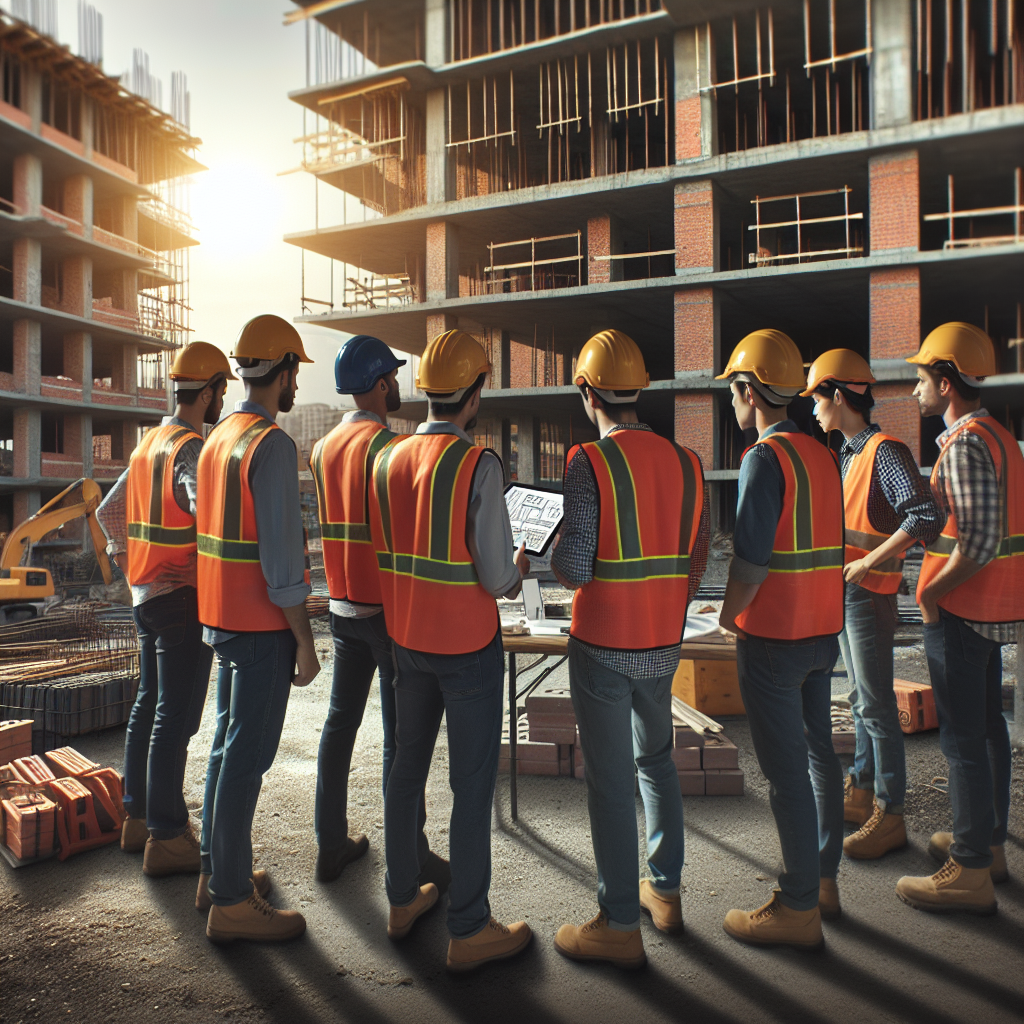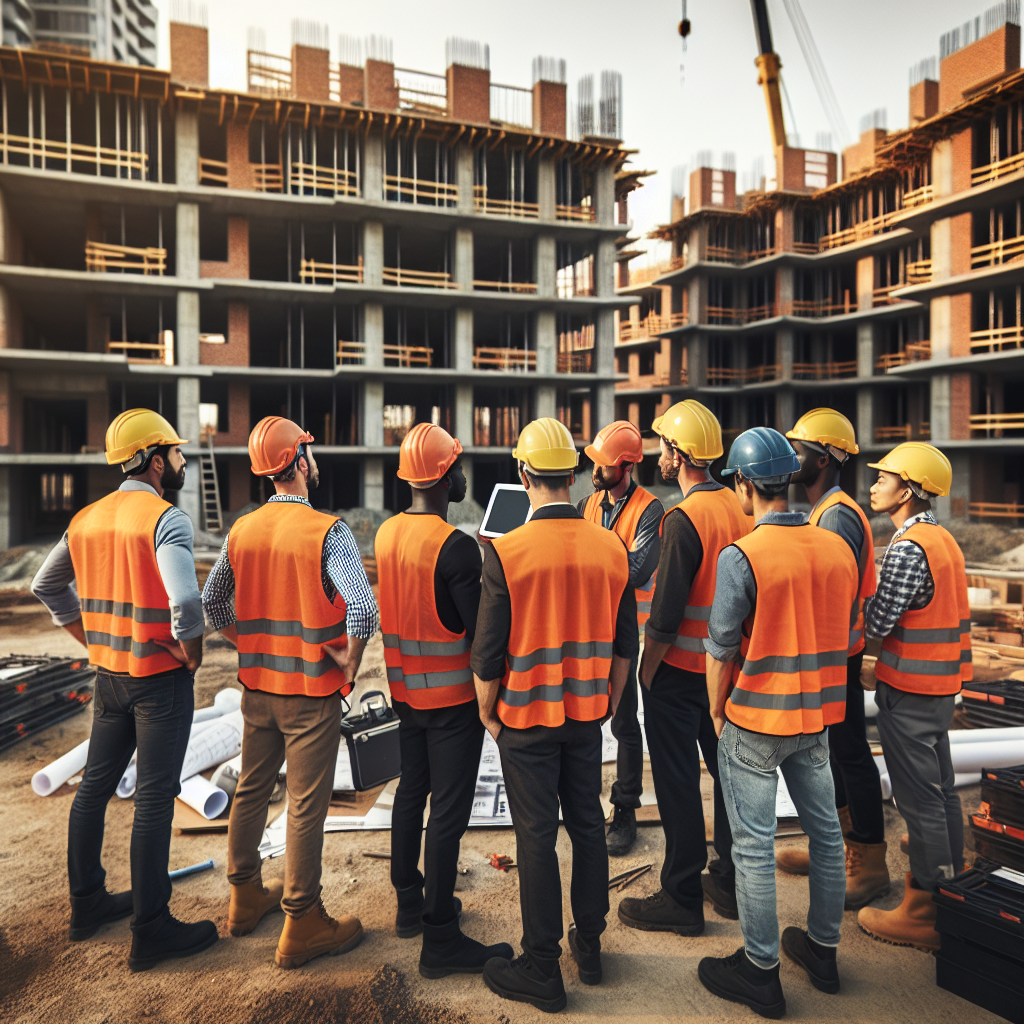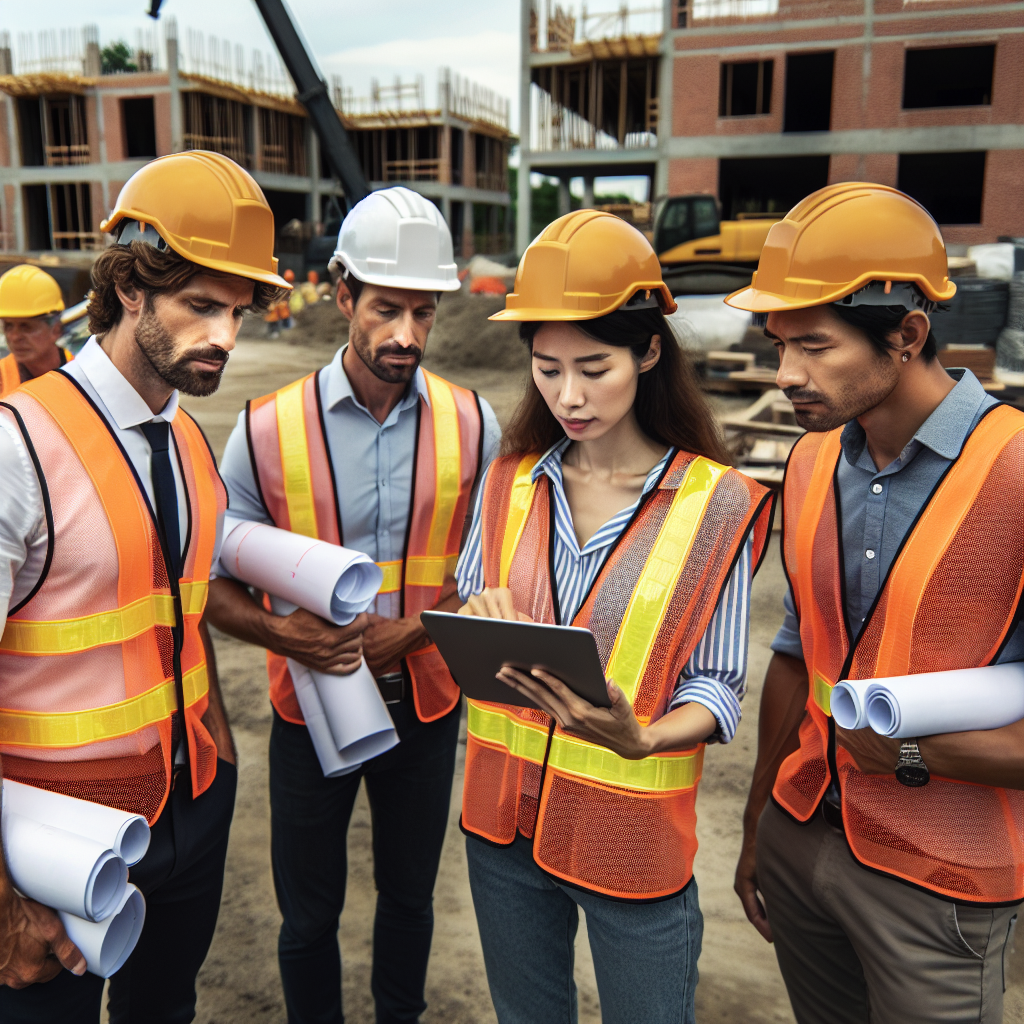How AI is Revolutionizing Risk Management in Construction
Introduction
The construction industry, known for its complexity and high-risk profile, is undergoing a significant transformation with the integration of Artificial Intelligence (AI). AI is revolutionizing risk management in construction by enhancing predictive capabilities, improving decision-making, and optimizing resource allocation.
Key Concepts and Benefits
Predictive Analytics and Risk Identification
AI-driven predictive analytics can analyze vast amounts of data to forecast potential risks and delays. This includes analyzing historical project data, weather patterns, worker behaviors, and equipment performance to identify patterns and anomalies that could signal potential risks.
- Real-Time Risk Identification: AI algorithms can monitor construction sites in real-time, identifying potential hazards and alerting managers to unsafe conditions before they become critical.
- Quantitative Risk Assessment: AI enables comprehensive risk assessment by evaluating the likelihood and impact of identified risks, allowing for more precise and proactive risk mitigation strategies.
Enhanced Decision-Making
AI provides construction professionals with valuable insights to make informed decisions. This includes:
- Proactive Decision Making: By analyzing data and predicting potential risks, AI helps construction teams prioritize and make well-informed decisions, ensuring efficient allocation of resources and precise mitigation strategies.
- Automated Project Scheduling: AI tools can automatically generate and adjust project schedules based on real-time data, reducing manual effort and ensuring that projects stay on track.
Improved Site Safety
AI is significantly enhancing site safety by:
- Monitoring Safety Protocols: AI-powered systems can check for proper PPE usage and identify potential collision near misses, ensuring that safety protocols are followed.
- Real-Time Safety Dashboards: AI can create real-time safety dashboards that monitor and predict site conditions, guiding project planning and execution to integrate safety from the ground up.
Efficient Resource Management
AI optimizes the allocation of resources such as labor, equipment, and materials by:
- Analyzing Current and Historical Data: AI helps ensure that resources are used efficiently, reducing waste and controlling costs.
- Automated Risk Assessment: AI assigns priority to issues and rates subcontractors based on a risk score, allowing construction managers to focus on high-risk areas.
Use Cases
Risk Management and Mitigation
- Identifying Hidden Patterns: Generative AI analyzes vast amounts of data to identify hidden patterns and predict potential hazards, enhancing workplace safety and allowing for more effective risk mitigation strategies.
- Continuous Monitoring: AI provides continuous monitoring of project risks throughout the entire lifecycle, offering real-time insights into potential issues and generating customized risk reports for stakeholders.
Preventing Accidents and Cost Overruns
- Predictive Safety Insights: AI predicts potential safety risks before they escalate, allowing EHS professionals to focus on preventing incidents rather than reacting to them.
- Cost Overruns Prevention: AI uses historical data and predictive models to predict cost overruns, enabling project managers to take proactive measures to stay within budget.
Streamlining Processes
- Automated Documentation: AI can streamline permit applications and safety inspections by automating the documentation process, reducing delays and ensuring compliance with regulatory standards.
- Smart Construction: AI is used to plan the routing of electrical and plumbing systems, track the real-time interactions of workers, machinery, and objects on the site, and alert supervisors of potential safety issues.
Best Practices
Integration with Existing Systems
- Aligning Business Objectives: Construction companies should align their business objectives with well-defined AI strategies to unlock the full potential of AI in risk management.
- Combining AI with Other Technologies: Integrating AI with other emerging technologies like IoT and robotics can enhance the effectiveness of risk management and overall project efficiency.
Continuous Training and Updates
- Staying Updated with AI Trends: Keeping an eye on future trends in AI can give construction companies a competitive edge. This includes advancements in AI algorithms and the integration of AI with other technologies.
Proactive Adoption
- Embracing AI Early: Construction companies that proactively adopt and implement AI-driven solutions can position themselves as industry leaders and drive sustainable growth.
Emerging Innovations
Generative AI
- Enhanced Safety and Risk Management: Generative AI is revolutionizing construction safety by predicting potential hazards, monitoring real-time data, and creating real-time safety dashboards.
- Predictive Analysis and Automated Reporting: Generative AI is expanding into predictive analysis, risk assessment, and automated reporting, enabling organizations to prevent accidents and save resources.
Machine Learning
- Smart Assistants: Machine learning acts as a smart assistant that scrutinizes data, alerts project managers about critical issues, and helps in filtering out non-essential information.
- Reinforcement Learning: Future algorithms will use reinforcement learning to optimize project planning by assessing endless combinations and alternatives based on similar projects.
How Zepth Can Help
Integrated Construction Management
Zepth’s construction management solutions can be enhanced with AI to provide a comprehensive and integrated approach to risk management. Here are some ways Zepth can help:
- Real-Time Data Analysis: Zepth’s platform can integrate with AI tools to analyze real-time data, predict potential risks, and provide actionable insights to project managers.
- Automated Project Scheduling: Zepth’s project management tools can be automated using AI to generate and adjust project schedules, ensuring that all team members are aware of their responsibilities and that projects stay on track.
- Resource Optimization: Zepth’s resource management features can be optimized using AI to ensure efficient allocation of labor, equipment, and materials, reducing waste and controlling costs.
By leveraging AI within Zepth’s construction management platform, construction companies can enhance their risk management strategies, improve site safety, and optimize project efficiency.
For more information on how Zepth can integrate AI into your construction management processes, visit Zepth’s Construction Management Solutions.
